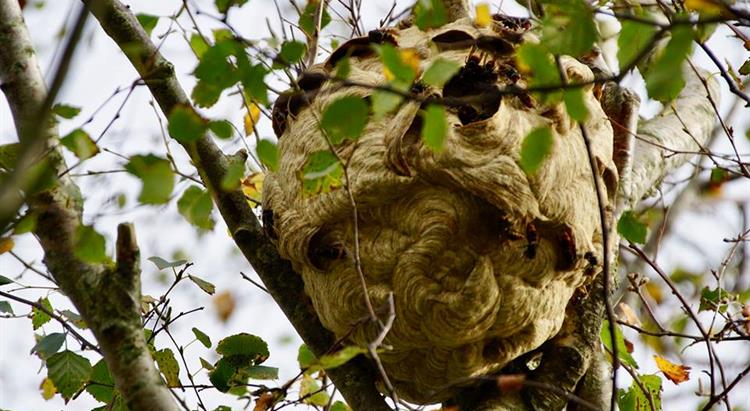25 October 2017

The Department of the Environment has issued further guidance about Asian Hornets.
As winter approaches and the nests become more visible, the department is asking people to continue to look for and report nests, but not to approach or touch them.
Another three nests have been found in the last week, one in brambles, two in hedges. It brings the total found to 13. The department is contacting groundsmen, gardeners and garden centres, schools and nurseries and other groups with the following guidance:
- Asian hornets are black with yellow legs, and a yellow-orange band on the bottom of their abdomen.
- Look out for nests – they could be sited high or low, for example, in trees, bushes, hedgerows or structures like sheds or roof spaces.
- People working outdoors in the countryside or in gardens should take a good look around an area for nests before starting work.
- If you see a nest, don’t go near it. Stay ten metres or more away, and don’t touch, disturb or cause vibrations around the nest. A nest can contain up to 3000 hornets and hornets may vigorously defend their nest.
- Report hornet or nest sightings to the Department of the Environment on +44 (0) 1534 441600, or environmentenquiries@gov.je. An officer or registered pest controller will come to identify the nest and remove it.
- Lone hornets aren’t more of a risk to human health than other wasps, but their sting can be more severe and they may sting more than once.
- The Asian hornet sting may present more of a risk of a severe allergic reaction or anaphylactic shock than other wasp stings. If you suffer from a wasp or bee allergy, take your usual precautions.
The Department of the Environment will continue to work closely with Jersey beekeepers and pest controllers to find and remove nests.